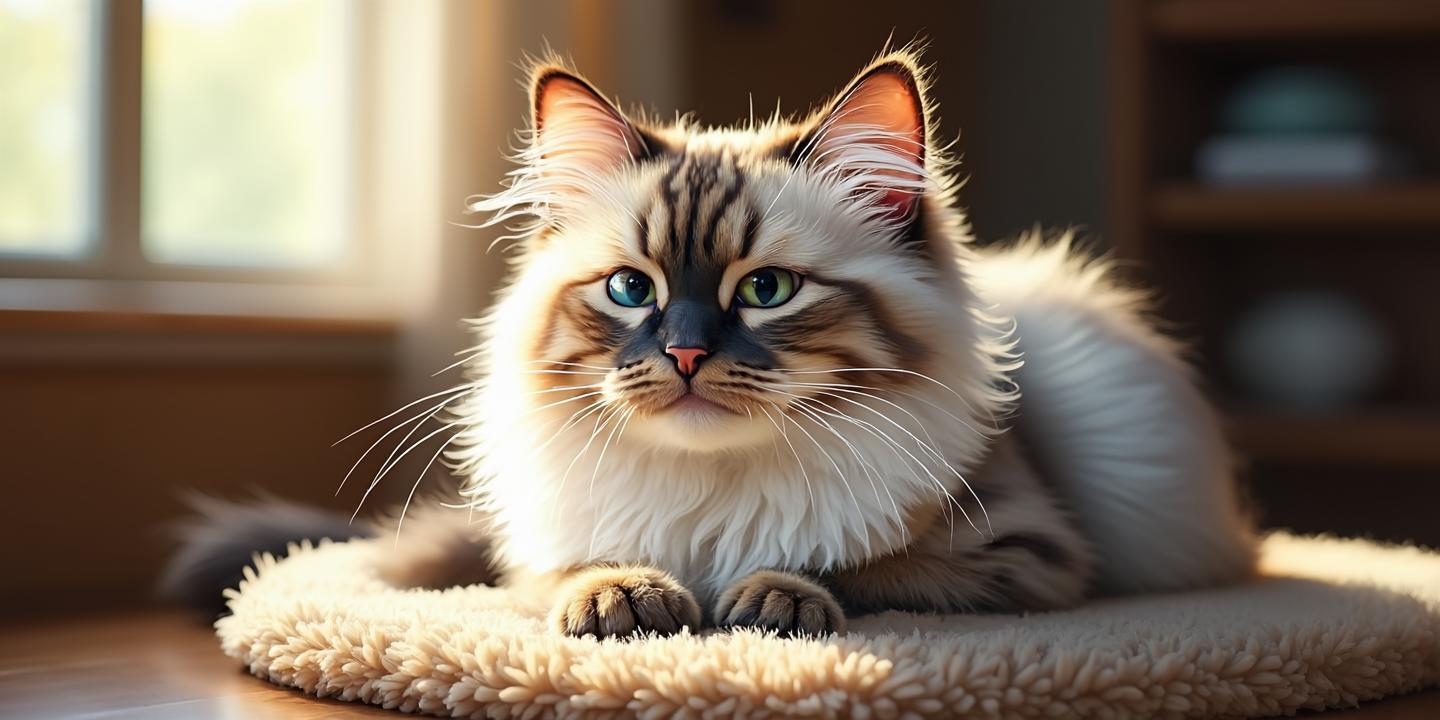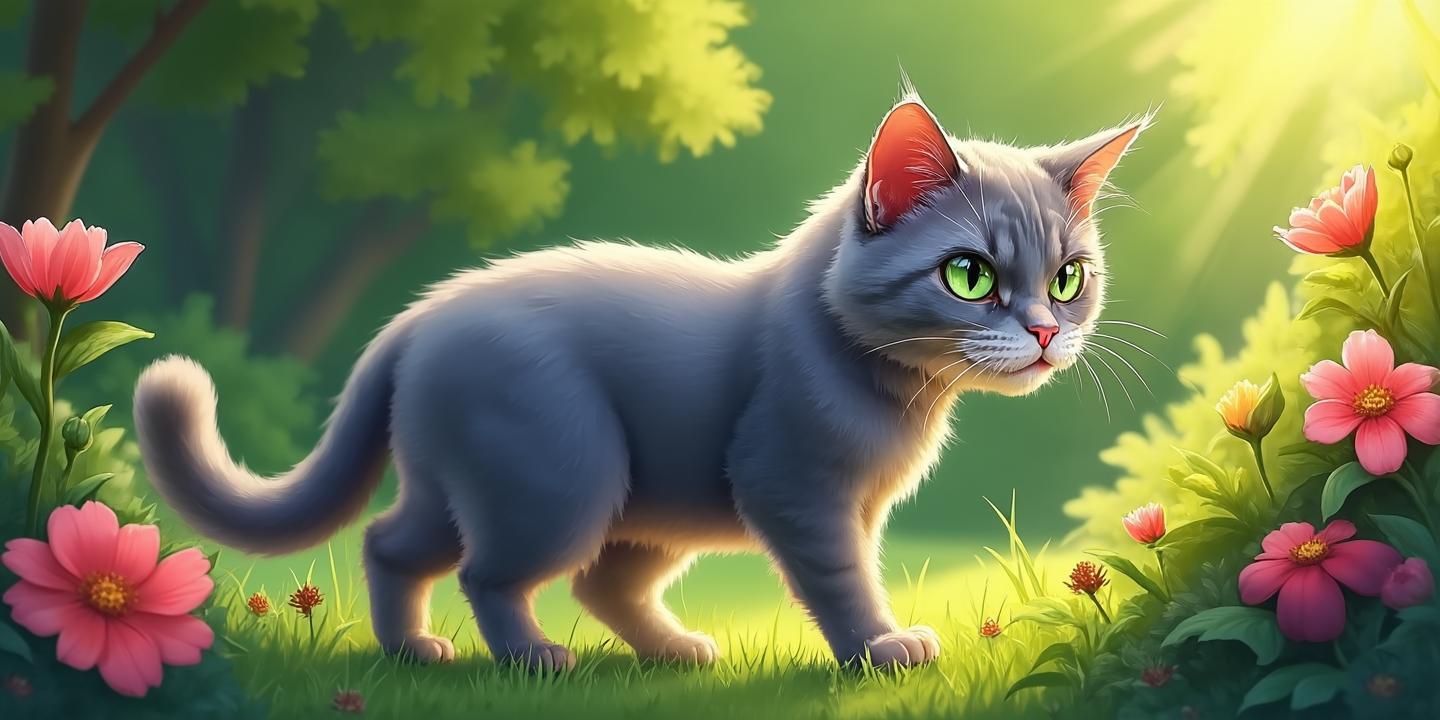发布时间2025-03-23 12:43

Why You Might Not Want to Own a Cat: A Thoughtful Perspective
Cats are undeniably adorable, with their soft fur, playful antics, and soothing purrs. They’ve become one of the most popular pets worldwide, often seen as low-maintenance companions. However, despite their charm, not everyone is eager to bring a feline friend into their home. If you’ve ever wondered, "Why don’t I want to own a cat?" you’re not alone. This article explores the reasons why some people choose to avoid cat ownership, offering a balanced perspective for those on the fence.
1. Allergies: A Common Barrier
One of the most significant reasons people avoid cats is allergies. Cat dander, saliva, and urine can trigger allergic reactions in many individuals, leading to symptoms like sneezing, itchy eyes, and even asthma. For some, these reactions are severe enough to make living with a cat impossible. Even hypoallergenic breeds, which produce fewer allergens, may not be a guaranteed solution. If you’re prone to allergies, owning a cat might not be the best choice for your health.
2. Time and Commitment
While cats are often considered low-maintenance compared to dogs, they still require time and attention. Cats need regular feeding, grooming, and playtime to stay healthy and happy. Additionally, they thrive on companionship and can become lonely or stressed if left alone for extended periods. If your lifestyle is too busy or unpredictable, you might struggle to meet a cat’s needs.
3. Financial Responsibility
Owning a cat comes with financial obligations. Beyond the initial adoption or purchase cost, you’ll need to budget for food, litter, toys, and routine veterinary care. Unexpected medical expenses can also arise, adding to the financial burden. If you’re not prepared for these costs, cat ownership might not be feasible.
4. Behavioral Challenges
Cats are independent creatures, but this independence can sometimes lead to behavioral issues. Scratching furniture, knocking over objects, or refusing to use the litter box are common problems that can frustrate owners. Training a cat requires patience and consistency, and not everyone is willing or able to invest the effort. If you’re not ready to handle these challenges, you might find cat ownership more stressful than rewarding.
5. Travel and Flexibility
Cats are territorial animals and often prefer staying in their familiar environment. This can make traveling difficult for cat owners. While cats can be left alone for short periods, longer trips require arranging for a pet sitter or boarding, which can be inconvenient and costly. If you frequently travel or value flexibility in your schedule, a cat might not be the ideal pet.
6. Personal Preferences
Not everyone is a "cat person." Some people simply don’t connect with cats or prefer the companionship of other animals, like dogs or birds. If you don’t feel a natural affinity for cats, forcing yourself to own one might lead to dissatisfaction for both you and the animal.
7. Environmental Concerns
Cats, especially those allowed outdoors, can have a significant impact on local wildlife. They are natural hunters and can threaten bird populations and other small animals. If you’re environmentally conscious, you might hesitate to own a cat for this reason.
8. Long-Term Commitment
Cats can live for 15 years or more, making them a long-term commitment. This means you’ll need to consider how a cat fits into your future plans, such as moving, starting a family, or changing careers. If you’re not ready for such a lasting responsibility, it’s worth reconsidering cat ownership.

9. Space Limitations
While cats don’t require as much space as dogs, they still need room to explore, play, and climb. Small apartments or homes with limited space might not provide an ideal environment for a cat. If your living situation is cramped, you might want to wait until you have more space before adopting a cat.
10. Emotional Attachment
Finally, owning a cat can be emotionally challenging. Cats can develop strong bonds with their owners, and losing a pet due to illness, old age, or other circumstances can be heartbreaking. If you’re not prepared for the emotional ups and downs of pet ownership, you might prefer to avoid it altogether.
In conclusion, while cats make wonderful companions for many people, they’re not the right fit for everyone. Understanding the potential challenges and considering your lifestyle, preferences, and circumstances can help you make an informed decision. Whether you choose to own a cat or not, the most important thing is to ensure that both you and the animal are happy and well-cared for.
更多热门问答